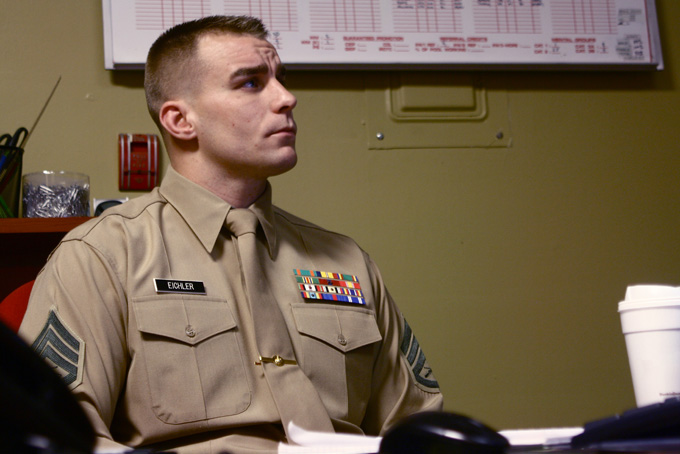
“Most people come to join the military when things get rough in their life,” said Navy Master Chief Petty Officer Eric Avery. “It’s an eye-opening experience when they come to the recruiting station, and our standards are higher than most of the companies out there in corporate America.”
Fewer military jobs in addition to the already dim economic climate for 16- to 24-year olds — for whom the unemployment rate is more than double the rate in the general population — is especially troubling in Pennsylvania. The state has long been a top recruiting ground for the armed forces, and many now see that route to employment cut off.
From the Marine recruit who wanted to put farm and factory jobs behind him to the future airman whose single mother couldn’t send him to college, there was still an option in the armed services. But the tightening of standards held true as both candidates faced delays and upsets along the way.
Drastic cuts
The U.S. military ballooned over the last decade of overseas conflicts, but troop levels have fallen by more than 48,000 since 2010. That leaves them at about 1.38 million, on par with the nation’s armed forces before the 2001 attacks.
And that’s just the beginning: The four combat branches will absorb significant reductions by 2017. The Army and Marine Corps plan to lessen the force by a combined 100,000 personnel.
Avery, the Navy chief recruiter for Pennsylvania and parts of three bordering states, was told to find 400 fewer recruits than the previous year, the “most drastic” cut in 10 years, he said.
The cuts are making waves in recruitment.
During the height of the Iraq War, the Army accepted plenty of people without high-school diplomas and the Marines allowed more people with histories of misconduct.
Not so today. The recruiters are looking for top students and star athletes.
They canvass high-school lunchrooms, job fairs and shopping plazas for quality candidates. They dive right into questions about health and fitness, grades, brushes with the law and other personal information to screen people out on the spot.

Staff Sgt. Anthony Eichler, who oversees three Marines recruiters in State College, Altoona and Dubois, said his team conducts up to 100 interviews a month. Out of that number, they typically enlist five or fewer.
“There’s not a lot of spots for young men and women to come in, so we’re looking for the best,” he said. “We’re trying to find the most intelligent, most moral and ethical people out there.”
Now, 99 percent of recruits have high-school diplomas. Teens are sent away for being overweight, having tattoos, Cs in science and even dirty ears. (Though they can come back after their ears have been cleaned.)